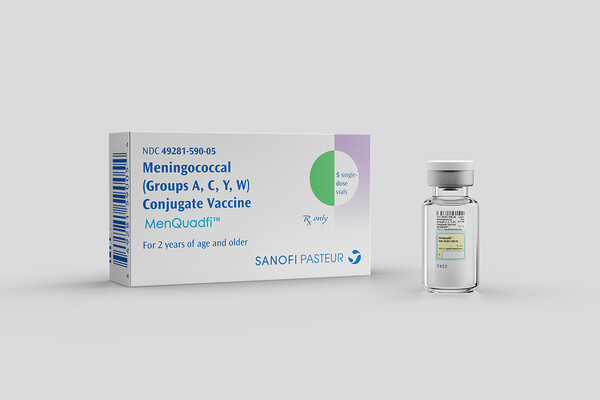The recommended age for the quadrivalent meningococcal vaccine MenQuadfi has been expanded to include infants aged six weeks and older.
Sanofi Korea announced on Thursday that its fully liquid quadrivalent meningococcal vaccine MenQuadfi received approval from the Ministry of Food and Drug Safety on Aug. 26 to expand its vaccination indication to infants aged six weeks to under two years old. This allows for a flexible vaccination schedule by age group from six weeks to 55 years.

MenQuadfi contains 10 μg of antigen for each of the four meningococcal serogroups (A, C, W, Y). Its fully liquid formulation allows direct administration without separate dilution or mixing, enhancing ease of use. It also uses tetanus toxoid as an immunogenic protein, inducing a strong T-cell-mediated immune response.
Infants aged six weeks to under six months can receive up to four doses. The initial three doses are administered at intervals of at least eight weeks each. The fourth dose is recommended at least six months after the third dose and when the infant is at least 12 months old. Infants aged six months to less than 24 months with no history of meningococcal vaccination receive two doses at least three months apart, with the second dose administered after 12 months of age. Additionally, individuals aged two to 55 years can expect protective efficacy with a single dose.
The approval of MenQuadfi's indications was based on the results of the MET42 and MET61 studies. The MET42 study was a phase 3 clinical trial comparing the immunogenicity and safety of MenQuadfi with an existing quadrivalent meningococcal vaccine in 2,627 infants and young children aged two to 18 months.
MenQuadfi induced excellent immune responses against the four meningococcal serogroups (A, C, W, Y) with just three doses starting at two months of age. The seroconversion rates were 64.4 percent for serogroup A, 96.4 percent for serogroup C, 92.8 percent for serogroup W, and 88.7 percent for serogroup Y. These rates were higher than those for the same serogroups in the control vaccine (serogroup A: 50.6 percent, serogroup C: 82.8 percent, serogroup W: 85.6 percent, serogroup Y: 81.8 percent).
After completing the fourth dose, the MenQuadfi group showed improved seroconversion rates: 79.4 percent for serogroup A, 97.0 percent for serogroup C, 97.6 percent for serogroup W, and 96.4 percent for serogroup Y. These rates were also higher than those observed in the control vaccine group (serogroup A: 77.6 percent, serogroup C: 88.2 percent, serogroup W: 96.4 percent, serogroup Y: 92.3 percent), confirming MenQuadfi's consistent immunogenicity.
The MET61 study is a clinical trial comparing the immunogenicity and safety of MenQuadfi with those of control vaccines, including another quadrivalent meningococcal vaccine, Menactra, administered using a two-dose schedule in infants aged 6 to 23 months. In this study, MenQuadfi demonstrated non-inferior immune responses compared to the comparator for all meningococcal serogroups (A, C, W, Y), and its safety profile was found to be comparable to that of existing vaccines.
“We find it highly meaningful that this expansion of MenQuadfi's domestic indications establishes a foundation to protect infants and young children from invasive meningococcal disease starting as early as six weeks of age,” said Park Hee-kyung, Head of Vaccines at Sanofi Korea.
"Meningococcal disease is an infectious disease that can progress rapidly and lead to fatal outcomes in infants and children, making prevention critically important. We will continue to work closely with health authorities to strengthen prevention strategies, ensuring safety against meningococcal infection across various age groups."

